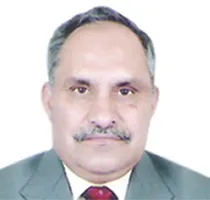The collective hypocrisy of Chennai's politicians towards the Tamil cause in Sri Lanka was once again evident in their response to Sri Lankan President Mahinda Rajapaksa's presence at Prime Minister Narendra Modi's swearing-in ceremony. Even though India has been badly burnt by the shenanigans of the LTTE, Tamil Nadu leaders are reluctant to acknowledge. The fact that the LTTE turned on the Indian Army's Peace Keeping Force that was attempting to implement the Indo-Sri Lanka Accord of 1987 to which the LTTE had also acceded, albeit reluctantly, earned the group only ill-will.
The LTTE's subsequent assassination of Prime Minister Rajiv Gandhi and its alleged involvement in the drug and arms trade, in alliance with militant groups inimical to India, did not help matters. The fact that Velupillai Prabhakaran, with his rabid fanaticism and utter refusal to compromise, destroyed at least two generations of Tamils, including Tamil political leadership opposed to the LTTE, and devastated the Tamil homeland in northern Sri Lanka — which even the most ardent Sinhalese could never have achieved — is something that politicians here attempt to gloss over when discussing the Sri Lankan response and Colombo's fight to the finish against the LTTE.
Hypocrisy of the political leadership of all hues in Tamil Nadu is completely exposed if we focus on the refugee issue. There are presently over 1,20,000 Tamil refugees living in India, mainly in the south. Of this, approximately 70,000 live either in the hundred odd general (open) or the three special (closed) refugee camps in Tamil Nadu. The first wave of refugees made their way in 1983 and spent over 30 years in the country.
The fact that India is neither a signatory to the 1951 Refugee Convention signed in Geneva, which recognises the rights of refugees, nor has New Delhi enacted the model law on refugees drafted by the PN Bhagwati committee advising provisional citizenship, does the country little credit, or, the refugees any favours.
The congestion in the refugee camps along with poor sanitation, lack of schooling and healthcare facilities has led to a miserable existence for those interned there. In addition, frequent police checks, harassment and exploitation of the residents, as they cannot officially hold jobs, have only added to growing frustration and an increasing involvement in criminal activities. Attempts to flee the camps, and India, for better climes, and hunger strikes within camps that have been occurring with increasing frequency do not find space in the media. Conditions within these camps are no better than those existing in camps in Sri Lanka, set up for internally displaced persons.
This brings us to the crux of the problem. The Tamil Nadu Government, apart from passing a resolution in the Assembly in 2012 calling on the United Nations to declare Sri Lankan President Mahinda Rajapaksa a war criminal, has done precious little to help the refugees in any other manner. This is in stark contrast to the manner in which the Tibetan refugees have been assimilated and permitted to function.
Tamil Nadu Chief Minister J Jayalalithaa and the other Tamil politicians should introspect instead of providing vocal but ineffectual support to the LTTE cause. MDMK leader Vaiko and his ilk have always found it easier to fight for the LTTE cause from the safety of their offices here, rather than taking a boat across to fight alongside their ideological compatriots. They obviously must have been fully aware as to exactly how that adventure would have ended.
It may, therefore, be far more helpful to the cause to concentrate on mitigating the conditions faced by the refugees in our own backyard. Also, irrespective of the atrocities against the Tamils by the Sri Lankan Army, India needs to give primacy to its national interest as Prime Minister Modi has clearly shown. In all likelihood, an upswing in friendly relations between the two countries is the only way in which India can influence the Sri Lankan leadership to be more compassionate and understanding to the problems of the Tamils there.
(The writer is with Observer Research Foundation)
Courtesy: The Pioneer, June 6, 2014
"
The views expressed above belong to the author(s). ORF research and analyses now available on Telegram! Click here to access our curated content — blogs, longforms and interviews.

